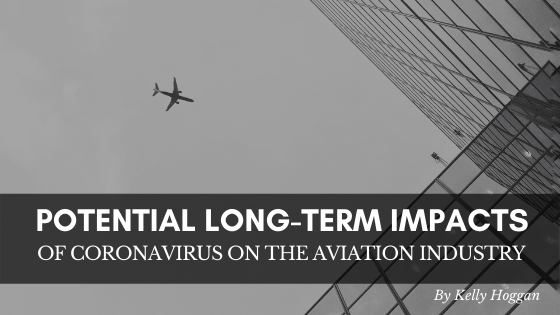The coronavirus has caused big changes in many cities and industries in 2020. One sector that’s been disproportionately affected by the virus is travel. Businesses like airlines and cruise lines have taken a huge hit. Because of restrictions on international travel, airlines have been hit incredibly hard.
Most airlines have grounded between 40% and 90% of their flights. Air travel has generally increased over the past 20 years, fueled by the availability of discount flights. In March 2020, travel was down over 85% compared to the same time in 2019. This decline is affecting not just the airlines; there is a whole industry supporting them. Businesses that make and sell parts for planes are also affected, though not to the same degree. Sales were down as much as 7% per week in March for these kinds of businesses. Bouncing back from the economic impact of the coronavirus may prove to be difficult because of how severe the effects have been as well as how many airlines and global businesses have been affected.
It’s almost unheard of for a president to take action to restrict travel. After all, Americans prize their freedom of movement. It takes an extraordinary circumstance for such action to be accepted. The last time that happened was after 9/11. The good news is that the aviation industry has historically recovered after those restrictions once. The Trump Administration is also poised to bail out the airlines to the tune of $50 billion, which helps to make up for the substantial loss of business airlines are currently experiencing.
This bailout is important because, while airlines keep a prudent reserve of cash, it’s only enough to cover operations for two to three months. As the “stay-at-home” and “shelter-in-place” type of orders are extended from April 30 to May 15 in hubs like Los Angeles, the strain on these businesses becomes ever more real. Worse yet, the possibility of more unemployed Americans is difficult to face. Already, there have been record numbers of filings by people who are out of work and looking to find a new job. The airline industry is no exception.
Fortunately, airlines make up a big part of the $2 trillion stimulus package. While recovery for the airline industry is expected, pleasure travel will likely take longer to bounce back. That’s because it’s so closely linked to disposable income and leisure time. It almost certainly won’t recover until people’s incomes and savings do. It’s not clear that all air routes will be back, and depending on how long this crisis persists, the aviation industry may struggle to resume normal operations in the months or years to come.


